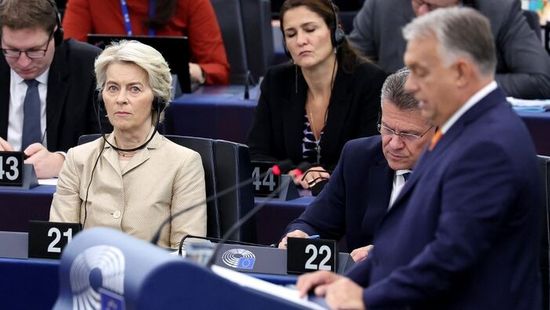Dokumentumok bizonyítják: Brüsszelben arra készülnek, hogy a Fidesz nyeri meg a választást

Az elemző szerint ráadásul az is egyértelmű, miért nem lenne rájuk szükség, ha Magyar Péteréket tartanák esélyesnek.

He needs to speak up, fight back and win back the respect of the public. They know that if he won't fight for his party and his program, he won't fight for them, either.
„Among the very puzzling aspects of the midterm election—and the Democratic debacle that appears to be looming in November—is why voters would return the opposition to power only two years after the multiple disasters of the Bush administration. They know that the years of Republican dominance in Washington led to an extremely expensive war that was launched on false pretenses; enormous deficits, skewed tax cuts and unrestrained waste; and, by the end, a ruined economy.
Most Americans feel no nostalgia for that era or its politicians. A midsummer Newsweek poll showed that the Republican right's program is still far from popular. Asked whether they care more about reducing the federal budget deficit or increasing federal spending to create jobs, 57 percent said they wanted more spending, not less, and only 37 percent were more concerned about red ink. More than half want to let the Bush tax cuts benefiting the top 2 percent expire, and only 38 percent prefer to extend them. Nearly every poll indicates that even now, as President Obama's approval ratings sink, those of his predecessor remain considerably lower. Yet we appear to be heading toward an election that will empower an ideological minority, whose candidates endorse extremist nostrums such as privatizing Social Security and shutting down the Environmental Protection Agency. Why should this be happening now?
There are several plausible explanations, but the most persuasive overall is what political scientists and pollsters describe as the "enthusiasm gap." The zeal that Democrats felt in 2006 when they ousted the corrupt Tom DeLay machine, and in 2008 when they bade farewell to George W. Bush and Dick Cheney, has dissipated under Barack Obama—who has inspired the same kind of fiery determination among Republicans. In a midterm election, when voter turnout is predictably much lower than in a presidential contest, the fervor of the partisan base can make the difference between a draw and a rout.”